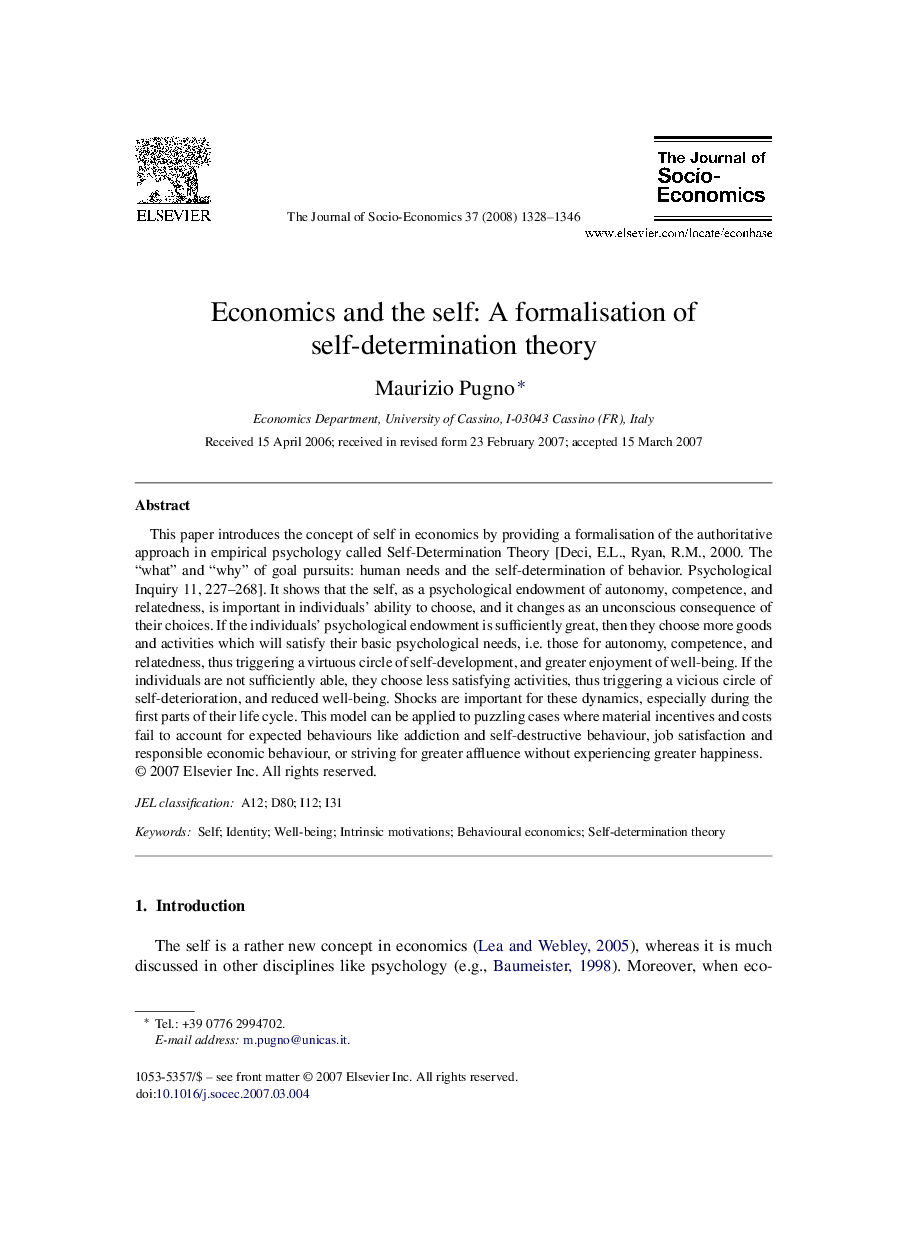| Article ID | Journal | Published Year | Pages | File Type |
|---|---|---|---|---|
| 971423 | The Journal of Socio-Economics | 2008 | 19 Pages |
This paper introduces the concept of self in economics by providing a formalisation of the authoritative approach in empirical psychology called Self-Determination Theory [Deci, E.L., Ryan, R.M., 2000. The “what” and “why” of goal pursuits: human needs and the self-determination of behavior. Psychological Inquiry 11, 227–268]. It shows that the self, as a psychological endowment of autonomy, competence, and relatedness, is important in individuals’ ability to choose, and it changes as an unconscious consequence of their choices. If the individuals’ psychological endowment is sufficiently great, then they choose more goods and activities which will satisfy their basic psychological needs, i.e. those for autonomy, competence, and relatedness, thus triggering a virtuous circle of self-development, and greater enjoyment of well-being. If the individuals are not sufficiently able, they choose less satisfying activities, thus triggering a vicious circle of self-deterioration, and reduced well-being. Shocks are important for these dynamics, especially during the first parts of their life cycle. This model can be applied to puzzling cases where material incentives and costs fail to account for expected behaviours like addiction and self-destructive behaviour, job satisfaction and responsible economic behaviour, or striving for greater affluence without experiencing greater happiness.
